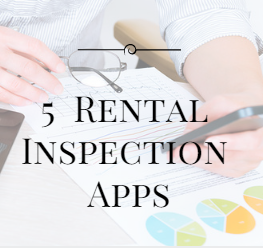One of the biggest red flags during a property management company audit involves improper handling of trust funds. In order to properly (and legally) handle owner and tenant funds, a property manager must understand the basic principles of trust accounting.
Trust accounting regulations for property managers are state specific, so it is very important you consult your state and local requirements in order to be compliant.
What are Trust Accounts?
There are specific rules about how business funds and transactions are handled by a property management company. Trust accounts for property managers are typically used to keep tenant deposits and rent payments separate from operating capital.
Some states require that all owner funds be maintained in a separate federally insured checking account. This account and the funds within, also known as a trust account, must be separate from your business and personal bank account(s).
These funds are considered to be client funds (or rental property owner funds) and not funds of the brokerage(property management company).
Both rents collected on an owner’s rental property and security deposits collected from tenants are considered trust funds and must be placed into a trust account. Please keep in the mind that rent collected on behalf of another person must be deposited into a trust account. Some believe that this only applies to security deposits/tenant deposits but that is not true, trust accounts are for all funds received on behalf of another for a real estate transaction.
The proper handling of these funds and accounting is important to avoid commingling of funds, which is illegal.
Some states require property managers and owners to specify in the management contract exactly how trust accounts will be used. Even if your state has specific regulations for trust account use, it is always good practice to identify specifics in your management agreement.
One or Multiple Accounts?
Depending on your state guidelines, a property manager can set up one aggregate trust account of separate accounts for each owner. If not regulated by the state, it is up to the property manager to decide between one or multiple accounts for accounting and tracking purposes.
Some property management companies choose to set up two accounts- one account established as an operating trust account and one serves as a tenant security deposit trust account. This is good practice so you don’t accidentally spend the security deposit funds.
Check with your state guidelines to determine if you are able to hold trust funds in an interest bearing trust account.
Remember to reconcile all your accounts on a timely basis to avoid any future discrepancies.
Time Allowed to Deposit
One of the most problematic requirements of trust accounts on how quickly the funds must be deposited. Some states require funds be deposited by the close of the next business day.
Consider using online payment processing (ACH) that is integrated with your property management software to avoid handling checks and making those deposit date deadlines.
Security Deposits
Security deposits are considered tenant funds until the landlord becomes entitled to receive all or part of the security deposit under the terms of the lease. When a property manager collects security deposit funds from a tenant, the money must be held in a trust account.
It is a good standard practice to have your Tenant Security Deposits in a separate account from your rents collected. Even though this is not a requirement in all states, it will help in tracking/reporting the amount of security deposits you should have deposited and that you are not accidentally using these funds.
Commingling of Funds
One of the most serious misuses of a trust account involves commingling of owner and manager funds. Depending on your state laws, different acts can be considered commingling:
- Personal or company funds are deposited in the trust account
- Trust account funds are deposited in a business or personal account
- Commission fees/ management fees are left in the account for a longer period of time than what is legally allowed
- Rent or security deposits on broker-owned property are placed in a trust account
- The property manager conducts personal business from the trust account
- One client’s funds are used for another client’s property
- Tenant security deposits are used to cover operating expenses
The rules, regulations, and customary practices vary wildly across the country and between states, so make sure you are familiar with your state’s specific laws.
Record Retention
Trust account regulations also specify how long records of trust account transactions must be kept.
To protect yourself and your business, it is important to keep any paperwork that might be necessary to defend yourself in the future should you face an audit or a legal battle.
Important records include (but are not limited to):
- Past and present management agreements
- Past and present lease agreements
- Checkbooks and checkbook registers for all accounts
- Record of all checks issued, including voided checks
- All bank statements
- All deposits
- Access to your bookkeeping system, such as your property management software
- Copies of all financial reports that have been provided for your owners
- Invoices paid to vendors
- Records of all security deposit refunds
Final Notes
It is critical for property managers to be aware of trust accounts and do their own internal audits. It is very important to make sure to stay in compliance, have your records in good order so if you happen to be audited you will be ready. The right property management software can be an extremely helpful tool to help you stay organized and compliant.
*This article is intended to provide an overview about general practices for managing trust accounts and should not be taken as legal advice.
####
Want more information about Trust Accounts for property management? Check back soon for our ebook on Trust Accounts coming soon!
Special thanks to Kathryn Jones at Rentec Direct for contributing the content included in this post.








I used a property manager for the first time to rent my condo in Bradenton, Florida. The Real Estate broker/property manager is now being accused of breach of contract and we are in litigation. Look over the contract, as the contract protects the Manager, and you may have no right even to receive a copy of the contract between Manager and tenant. No accounting of where the rent and security is being held. This is what I am fighting in Manatee county court. I will keep you posted on the legal outcome.
Oh gosh, what a nightmare! Thanks for keeping us to date Beverley. Good luck!
A rental management company was “short” a substantial amount of money (many thousands) in the “escrow account,” as was noted by the auditor. Manager and accountant were subsequently let go and a forensic accountant hired to investigate. In your experience, is there a reasonable explanation for the shortfall in the escrow account?
Escrow/Trust account “monthly” reconciliations are required when a Broker/Manager handles account; that of course should include owners; it is the only way to reconcile balances against ledgers, if a short-fall is noted , immediate action can be taken to correct it. As to whether how could it happen? Well ledger and bookkeeping errors are possible, but to ignore and not attempt to reconcile, tends to mean, disingenuous activity may have occurred; for that there is no excuse!
I am hoping some one with your knowledge and experience can figure out a way to keep track of the managers.
In phoenix they are all dishonest, keep whatever they want. Because they know no one will check on them.
Concerned with the grant money. Etc. Bonuses, incentives that the v. A. ,Govt give to the managers, then they don’t even apply the 9000. VA gives them for veterans rent.
Eleanor wood
Hi Eleanor, I am sorry to hear your struggles. Please reach out to your local housing authority regarding reporting any issues with managers as they would be your best resource.
I am a Property Manager in Alabama and we always have this discussion about co-mingling of funds. We have a separate account for security deposits, that is never touched. We have an operating account where management and other company income are deposited to and company bills are paid from. The question is with the rental account, that is very fluid with rent payments always coming in and owner disbursements and maintenance bills being paid out. We require a minimum $300 reserve for each of our properties, which adds up to on average 50-60 thousand dollars just sitting there. When there are bigger expenses, over the $300, we pay for them from the rental account, expecting rent funds to come in the next month or two to cover the expense. This requires use of these accumulated reserve funds. We don’t know how else to do this, or how unethical or even illegal is the practice. We have never had a problem and rarely if ever extend even half of the total reserve in any given month, It is a necessity we face in order to keep up with maintenance needs. If an HVAC unit goes out for example and the owner can’t send us the 4-5 thousand up front, which they often don’t have, we can’t let the tenant live in a house without. So, we use the reserve funds, which are a static pool of money and pay back with the next few months rent. I don’t know how other companies manage there maintenance situation and assume it must be the same everywhere as we haven’t found a better solution.
Can my landlord keep me from getting our belongings from the house we rent because we owe back rent and can she lock us out without going to court
Hi Jessica, in most states a landlord can not lock out a tenant without a court order. However, there are some exceptions and usually, within the states that allow a lockout, there will be a clause in the lease with details on that process. For example, in Texas, a temporary lockout is allowed under certain circumstances.
My first recommendation is to contact your local housing authority to find out what is allowable in your area. If the lockout was done outside of those regulations, and the landlord will not give you a new key, I would call the police for access.
Thanks for the article on trust funds, I super key factor is how to start one? These TRUST accounts are not a typical Trust account as in wills and estates which may confuse someone. Also the banks will ask you for a COT Certificate of trust, A will estate trust and a COT are not what is needed for this type of account since these are for will/estate purposes. With that said if your fictitious name statement says sole proprietor then banks wont check the TRUST box on your signature card which the BRE may ask for so BRE considers this as commingling. There are only a few banks that open a “BROKERS TRUST” account which is NOT a will/estate type trust that may have different tax consequences. Bottom line… most banks will not understand this type of BROKERS TRUST account and think it is will/estate trust ITS NOT THE SAME…. ATTENTION///// READ a CALBRE article on opening a brokers trust account thats on their website. whoever is trying to MUST read. It may clarify or confuse some banks, but you absolutely should read it… The account needs to be CAPTIONED as a Trust account according ???? Also there is an article that mentions the 10 most common violation found in BRE audit..Im currently in the process of getting the proper account. I will try to reply back with the results that satisfy the BRE. Ok i got proper account… several banks DO NOT OFFER THIS ACCOUNT, dont waste your time. Be very clear the type account you want. ***Show them BRE article****. B of A, chase bank do NOT offer this account, Bank of the west does and maybe others.
So my audit??? i got license suspension 2 years, pay $1820 for court costs. I got raked over the coals all day on virtual hearing with BRE lawyer, accountant and judge. LOL IT WAS ROUGH…. But fair i guess. took in over 4.5 million of trust funds. I was $1700 short, which i had to cover. No big deal? Wrong!!! this is a huge violation. Even ONE dollar short or over is a violation because it is technically a failure to balance the TRUST account. I suggest a good property management program and MAKE sure you have correct TRUST account and make sure you balance exactly every month to the penny. if your audited they will ask for random months of books, your license # on all advertising and other things found in the top 10 article. YOU MUST READ THE TRUST FUND ARTICLE AND THE TOP TEN COMMON VIOLATIONS THAT YOU CAN FIND FROM AT LEAST MY STATE OF CALIFORNIA. Also if???? you are short or over even one dollar you must send a letter to all your clients letting them know that. The BRE process was tough but fair, i do understand that someone at this level needs to ensure the publics safety in these matters. Good luck.. READ those two articles……
You are very welcome. Thank you for sharing your experience as a cautionary tale on the importance of opening the correct type of account. You are correct, those types of trust accounts are uniquely different and many financial institutions are not familiar with those differences. I did a little research and I believe these are the California BRE articles you were referencing:
https://www.dre.ca.gov/files/pdf/OpeningTrustAccount.pdf
https://www.dre.ca.gov/files/pdf/CommonViolationsFoundInAudits.pdf
Although they are specifically from the California BRE, they may be useful for others across the country. Best practice across the country is to reach out to your state for specifics related to trust accounting and audits and meet with an upper or senior-level executive at your financial institution prior to processing transactions.
Thank you again for sharing your experiences and the great advice you offered.
Thanks so very much for taking my comments one step further by posting the articles. Funny thing is that this was my second audit in 2-3 years and the BRE never pointed these out to me on the first audit??? I discovered them on my own. Have a fantastic day!!!!
You are very welcome — Happy to help!
I have a tenant who won’t give me their social security number which is required to open an escrow account. What should I do? Is there another way I can hold their security deposit in trust?
Hi Angela, that is an excellent question. Typically a landlord is given the SSN during the tenant screening process so if at this point you haven’t been given that information, I’m not sure how you’d move forward. Additionally, I’m familiar with landlords opening one trust account to hold all tenants deposit, but I haven’t encountered separate trust accounts for each tenant deposit. Because I’m unfamiliar with this and I can not offer legal advice, I would recommend speaking with your real estate attorney and/or financial advisor as they would know best how you can hold that security deposit. Feel free to come back and share your results as I’m sure others will want to know how this turns out for you. All the best!
Hi, I am just starting out as a property manager. Just had a Shareholder ask for me to manage his 5 apartments. My question is how do I collect his rent money without paying taxes. I went to Chase and they had no idea how I can legally collect someones rent money. I probably shouldn’t use my personal account but what account should I open and can I do it without the Shareholder at the bank with me?
Congratulations Charlie on starting out as a property manager. I’m sorry the person you spoke to at Chase didn’t understand trust accounting for property management. The local branch might not have a business representative with that information so you might need to call to find out who to speak to about property management trust accounts. But before you do — it’s important to figure out your roll in working with those shareholders:
If you have been hired by the shareholders to be a property manager for their assets only (meaning you’re not opening a property management company) — they would likely need to open the bank accounts and authorize you to make deposits and pay expenses, etc.. on their behalf. The shareholders should be working with their accountant and real estate attorney to decide the appropriate type of bank accounts (business vs trust) needed based on their portfolio, assets, and real estate regulations in that area.
However, if you not being hired but rather you’re starting your own property management company, that’s a different scenario. You would need to open trust accounts so you can manage the assets (income/expenses) for the properties you have agreed to manage. That means, you’d be able to take on managing the portfolios for other clients/owners as well.
There are large tax and regulatory issues if you accept rent into a personal or a business account that hasn’t been setup appropriately. But just as important are the other landlord-tenant laws, property management obligations, and financial regulations to consider. Be sure you reach out to your real estate board and local housing authority and get familiar with the regulations for managing properties (as a hired pm or as a pm company) in your state and local area. If not, you could be violating federal, state, or local laws and be setting yourself up for tax and legal issues.
In the event you do need to open or manage trust accounts, I’ve pulled together a little more information that you might find helpful:
Rental Property Management Trust Accounting Primer
Why You Need a Separate Bank Account for Each and Every Real Estate Property
Trust Accounting